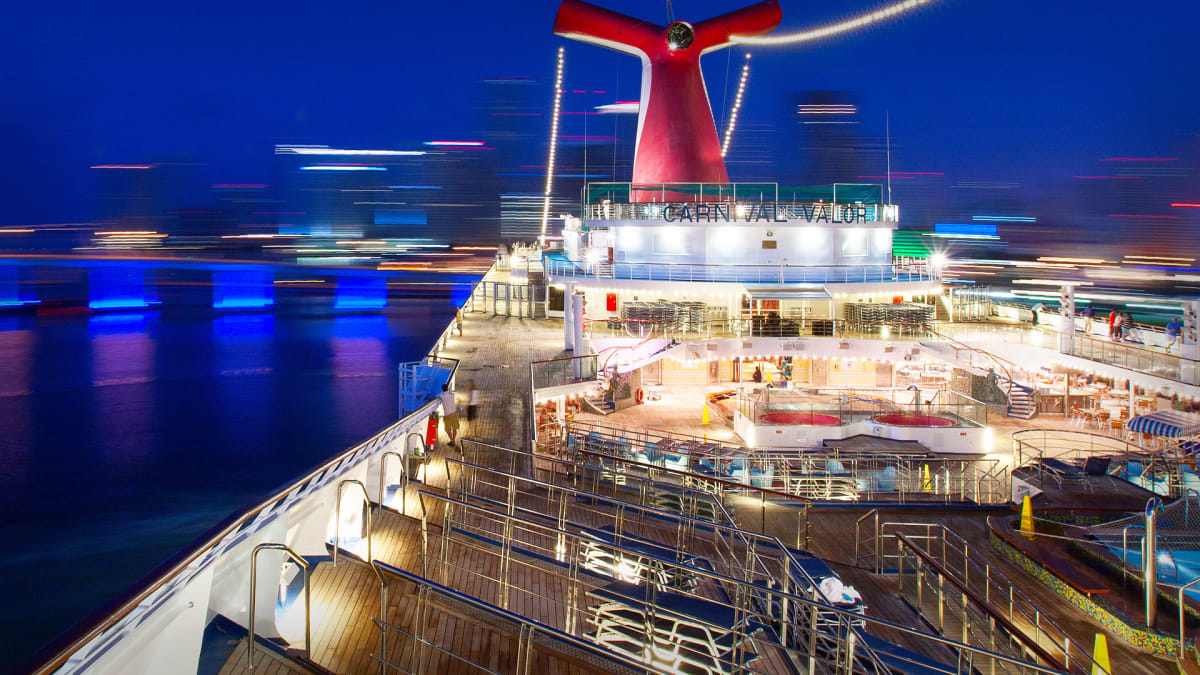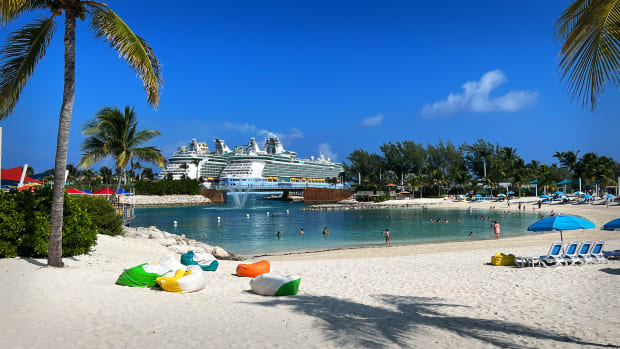
Royal Caribbean and Carnival Cruise Lines have a lot of ships sailing in the Caribbean. Both companies sail out of multiple ports on Florida's east coast, with regular stops in the Bahamas.
In fact, Royal Caribbean (RCL) has three ships at nearly all times sailing three- and four-day itineraries from those ports. Those will soon include Allure of the Seas, one of its largest ships, making those short sailings.
DON'T MISS: Royal Caribbean Shares Key Pricing News (You Won't Like It)
In addition, both cruise lines sail to the Caribbean and call on the Bahamas from other ports. Some Royal Caribbean sailings from Tampa, for example, follow those itineraries while Carnival (CCL) has ships sailing to the Bahamas from Jacksonville and from Charleston, S.C.
Both cruise lines also sail to the Caribbean from Galveston, Texas. It's not that other cruise lines don't sail to the Caribbean, but CCL and RCL have large parts of their fleet not only sailing to the Caribbean but stopping in Nassau.
It's sort of a given that most Royal Caribbean and Carnival ships sailing from Florida will stop in Nassau. That's not a favored port of most frequent cruisers, simply because many have been there more than a few times, but it's a regular stop because the port can accommodate as many as seven cruise ships at any one time.
Nassau has been making some major improvements to its port, and the government wants to make more money from each passenger who visits.

Image source: Daniel Kline/TheStreet
Bahamas Looks to Increase Visitor Fees
Currently. the Bahamas charges a fee for each passenger when the cruise lines call on Nassau, Freeport, or their private islands that fall under Bahamian control. You pay these fees whether or not you get off the ship.
Both Royal Caribbean and Carnival add these destination fees to your basic fare. Neither cruise line breaks down how much you pay for each stop, but these fees are not unique to the Bahamas. You pay something for every port your cruise ship calls on; the amounts vary by location.
Now, the government of the Bahamas plans to raise the fee it charges per passenger for stops under its jurisdiction.
"The Bahamas currently levies an $18 per passenger departure tax, and that tax would rise by about 27%, to $23, for guests whose ships leave from Nassau and Freeport," CruiseHive reported.
In addition, the new legislation, which is currently being considered as part of the Bahamas' overall budget negotiations, would also include a $25 fee (an increase of roughly 38%) for those who depart the country by sea from a private island, without calling at another port in the country.
"Additionally, the bill creates a $5 tourism environment tax and a $2 tourism enhancement tax on cruisers arriving or departing the destination. All told, each cruiser leaving from Nassau and Freeport would be charged $30, while those leaving from a private island would pay $32," the website added.
Royal Caribbean and Carnival Also Add Fees
While the cruise lines have no say in whether ports of call increase their fees, they do control how they charge for various things onboard.
Both Royal Caribbean and Carnival (along with rival Norwegian Cruise Line (NCLH)) have raised their mandatory gratuities in the past year.
Those increases came after both cruise lines cut housekeeping services for interior and balcony cabins from twice a day to once a day. Suite guests saw their daily gratuities increase as well, but both Royal Caribbean and Carnival still service those rooms twice a day.
In addition, both Royal Caribbean and Carnival have tweaked their fees in the main dining room.
Carnival has added a $5 charge for anyone ordering a third entree (and for each one after). Royal Caribbean has ended its Lobster Night policy, where passengers could eat unlimited lobster tails. Now, they pay $16.99 plus an 18% gratuity for unlimited tails after the first one.







